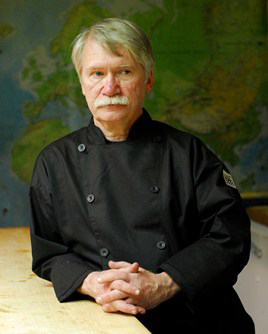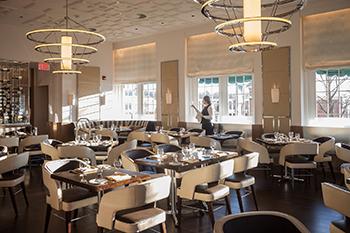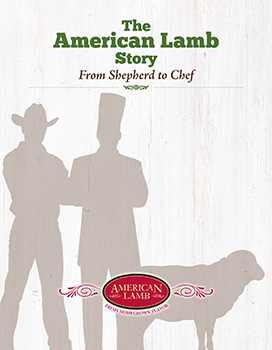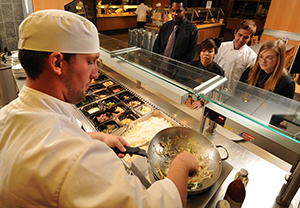Think Tank: Partners in Education
Tuesday, 07 October 2014 12:58
 Integration of industry and education better prepares students for success and makes a school essential in the eyes of all stakeholders. Good news is that opportunities for your program to partner with your local business community are endless.
Integration of industry and education better prepares students for success and makes a school essential in the eyes of all stakeholders. Good news is that opportunities for your program to partner with your local business community are endless.
By Paul Sorgule, MS, AAC
Sometimes programs tend to underestimate the breadth of resources and educational talent at their disposal. We look to our full- and part-time faculty as the primary resource and strength of a program, as one would assume.
However, those program administrators who see the potential to draw the hospitality community into the folds of their faculty resources can build a truly dynamic curriculum to rival the largest and finest colleges. Creating a stage for Partners in Education allows business leaders to understand how they might assist in building extraordinary opportunities for young people aspiring to a career in hospitality.
We all understand how this might occur through internships and externships, giving students the ability to apply the hands-on skills they are developing in a campus program, but few programs understand that this “partnership” can extend to all academic courses, as well. Hands-on can apply to every part of your curriculum. Considering that most students enrolled in culinary programs are tactile learners, this application approach can result in a more-engaged student, enhanced relationships with outside stakeholders in your program, and a truly balanced graduate.
Students, parents and accrediting agencies are collectively holding college administrators and faculty members to a different standard. Everyone seems to want measureable, and visible, outcomes that make a difference in a student’s professional life. Stakeholders are looking for value.

 New research from the National Restaurant Association shows a substantial number of operators are implementing sustainability best practices into their businesses.
New research from the National Restaurant Association shows a substantial number of operators are implementing sustainability best practices into their businesses. Twenty restaurants across the United States were recipients of 2014 Achievement of Excellence Awards from the American Culinary Federation (ACF) this summer. Three of them are on The Culinary Institute of America’s Hyde Park, N.Y. campus: American Bounty Restaurant, The Bocuse Restaurant, and Ristorante Caterina de’ Medici. In addition, nine CIA graduates were honored at the organization’s awards event held during the ACF national conference in Kansas City, Mo., in July.
Twenty restaurants across the United States were recipients of 2014 Achievement of Excellence Awards from the American Culinary Federation (ACF) this summer. Three of them are on The Culinary Institute of America’s Hyde Park, N.Y. campus: American Bounty Restaurant, The Bocuse Restaurant, and Ristorante Caterina de’ Medici. In addition, nine CIA graduates were honored at the organization’s awards event held during the ACF national conference in Kansas City, Mo., in July. Discover homegrown American lamb stories and recipes to inspire your menu. A new booklet from the American Lamb Board shares information on American lamb from shepherds to chefs across the country. The booklet also includes chef-developed recipes including chorizo-spiced lamb loin and merguez flatbread. To order your fee copy of the booklet, e-mail
Discover homegrown American lamb stories and recipes to inspire your menu. A new booklet from the American Lamb Board shares information on American lamb from shepherds to chefs across the country. The booklet also includes chef-developed recipes including chorizo-spiced lamb loin and merguez flatbread. To order your fee copy of the booklet, e-mail  The National Mango Board announces the release of a new tool to inspire menu innovation, Mango Flavor Pairing Guide. The guide was developed to create excitement about fresh mango as a versatile ingredient, the key to innovation all across menus, all year ’round. The mango pairings showcase complementary and contrasting sensory combinations from familiar to surprising.
The National Mango Board announces the release of a new tool to inspire menu innovation, Mango Flavor Pairing Guide. The guide was developed to create excitement about fresh mango as a versatile ingredient, the key to innovation all across menus, all year ’round. The mango pairings showcase complementary and contrasting sensory combinations from familiar to surprising. Consumer interests and industry needs were the driving forces behind the U.S. Highbush Blueberry Council’s (USHBC) recent website overhaul and launch. Fresh design, a streamlined format and the optimized platform for mobile and tablet viewing provide industry professionals and consumers alike with a consistent and engaging experience.
Consumer interests and industry needs were the driving forces behind the U.S. Highbush Blueberry Council’s (USHBC) recent website overhaul and launch. Fresh design, a streamlined format and the optimized platform for mobile and tablet viewing provide industry professionals and consumers alike with a consistent and engaging experience. True tastes of the bayou are surfacing throughout the South, and
True tastes of the bayou are surfacing throughout the South, and  In this final of three installments focusing on employing an effective interaction strategy to increase loyalty and sales in your program’s student-run foodservice outlets, influencing four customer perceptions—“Fresh,” “Trust,” “Mystery” and “Ownership”—is key to success.
In this final of three installments focusing on employing an effective interaction strategy to increase loyalty and sales in your program’s student-run foodservice outlets, influencing four customer perceptions—“Fresh,” “Trust,” “Mystery” and “Ownership”—is key to success.